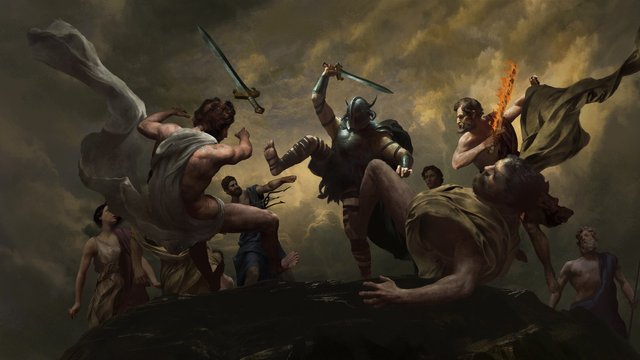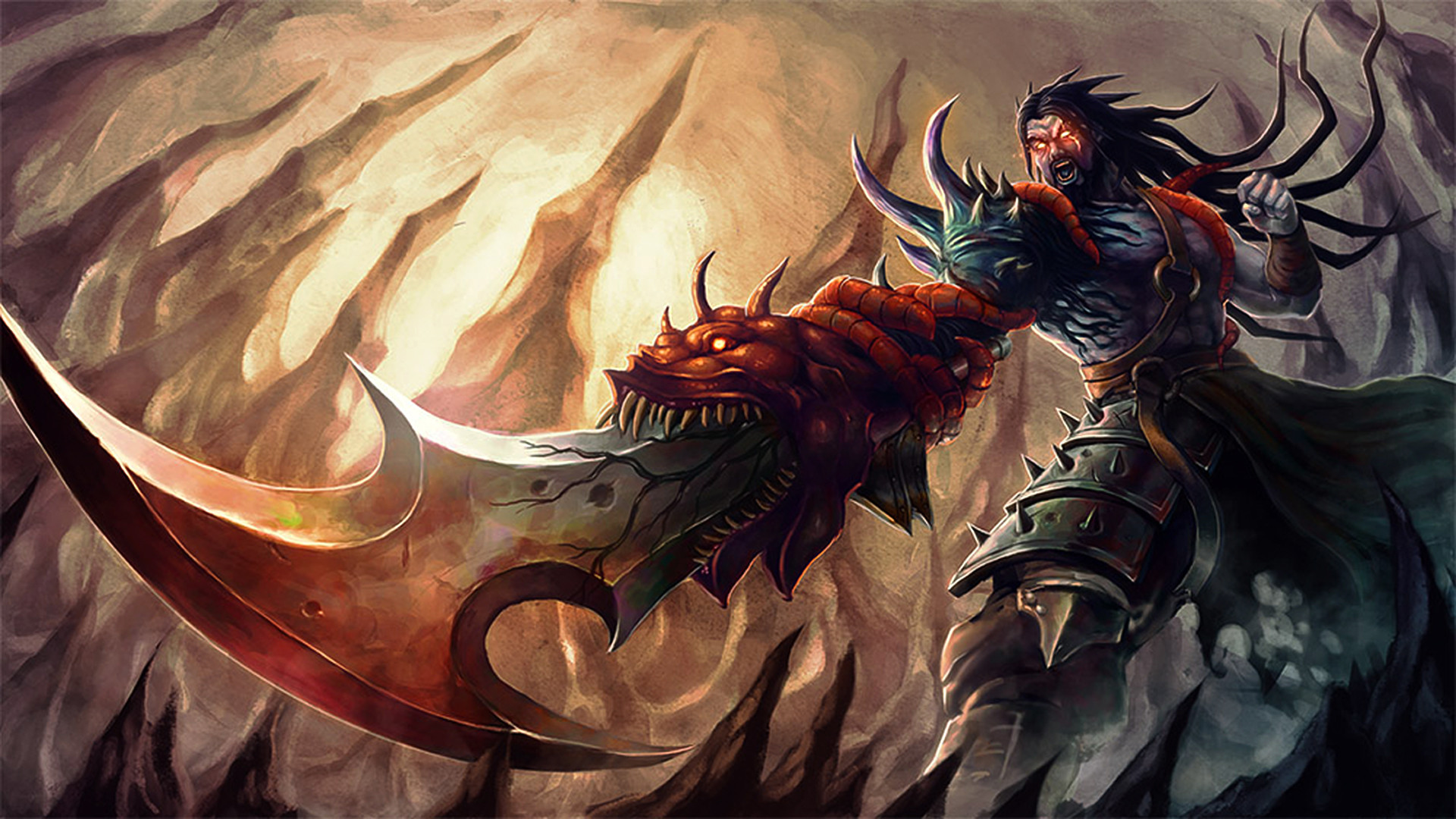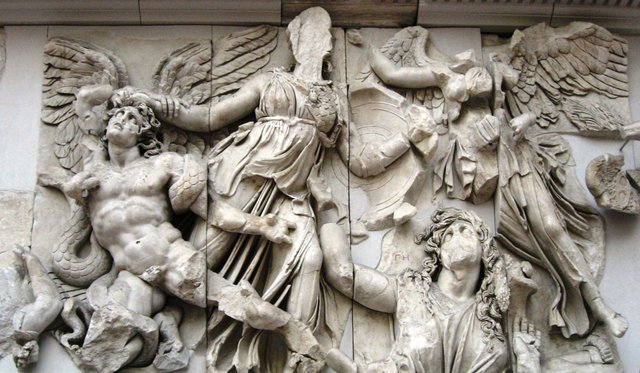Mythology, Legends of gods and goddesses : Ares

Ares was the Greek god of war and perhaps the most unpopular of all the Olympian gods because of his quick temper, aggressiveness, and unquenchable thirst for conflict. He famously seduced Aphrodite, unsuccessfully fought with Hercules, and enraged Poseidon by killing his son Halirrhothios. One of the more human Olympian gods, he was a popular subject in Greek art and even more so in Roman times when he took on a much more serious aspect as Mars, the Roman god of war.
Son of Zeus and Hera, Ares’ sisters were Hebe and Eileithyia. Despite being a god, the Greeks considered him from Thrace, perhaps in an attempt to associate him with what they thought of as foreign and war-loving peoples, wholly different from themselves. Ares had various children with different partners, several of whom were unfortunate enough to come up against Hercules when he performed his celebrated twelve labors. Ares’ daughter Hippolyta, the Amazon queen, lost her girdle to Hercules; his son Eurytion lost his cattle; and Diomedes had his horses stolen by the Greek hero. The courageous but warlike Amazons were also thought to be descendants of Ares. Ares was noted for his beauty and courage, qualities which no doubt helped him win the affections of Aphrodite (even though she was married to Hephaistos) with whom he had a daughter, Harmonia, and the god of love and desire Eros. Hephaistos managed to entrap the lovers in an ingenious bed, and the tale is told in some detail in Book 8 of Homer's Odyssey. Once caught, the punishment for Ares' indiscretion was temporary banishment from Mount Olympus.

‘Described by Hesiod in his Theogony as 'shield-piercing Ares' and 'city-sacking Ares,' the god represented the more brutal and bloody side of battle, which was in contrast to Athena who represented the more strategic elements of warfare. In stories from Greek mythology, Ares was usually to be found in the company of his other children with Aphrodite, Phobos (Fear) and Deimos (Terror), with his sister Eris (Strife), and with his charioteer Ennyo.
The most popular myth involving Ares was his fight with Hercules. Ares’ son Kyknos was infamous for waylaying pilgrims on their way to the oracle at Delphi, and so earned the displeasure of Apollo, who sent Hercules to deal with him. Hercules killed Kyknos, and a furious Ares engaged the hero in a fight. However, Hercules was Protected from harm by Athena and even managed to wound Ares. Another myth and ignominious episode for Ares was his capture by the twin Giants Ephialtes and Otus when they stormed Mount Olympus. They imprisoned the god in a bronze jar (or cauldron) for one year and he was only freed through the intervention of Hermes.

In Homer’s version of the Trojan War in the Iliad, Ares supports the Trojans, sometimes even leading them in battle along with Hector. The Iliad shows Ares in a less than positive light, and he is described as 'hateful Ares,' 'the man-killer,' 'the war-glutton,' and the 'curse of men.' Homer’s picture of Ares, like the above mythological tales, often demonstrates his weakness in comparison to the other gods. Ares is roundly beaten by Athena who, supporting the Achaeans, knocks him out with a large rock. He also comes off worse against the Achaean hero Diomedes who even manages to injure the god with his spear, albeit with the help of Athena. Homer describes the scream of the wounded Ares as like the shouts of 10,000 men. Fleeing back to Olympus, Zeus ignores the complaints of Ares but instructs Paieon to heal his wound.
Ares again upset the harmony of Olympus when he was accused of killing Poseidon’s son Halirrhothios near a stream below the Athenian acropolis. A special court was convened - the Areopagos - on a hill near the stream, to hear the case.
Ares was acquitted as it was disclosed Halirrhothios had raped Ares’ daughter Alcippe. Thereafter in Athens, the Areopagus became the place of trial for cases involving murder and impiety. Perhaps unsurprisingly, considering the city’s strong militaristic culture, Ares was greatly esteemed in Sparta. Ares was not commonly worshipped but there were cult sites with temples dedicated to the god on Crete (he is mentioned in Linear B tablets from Knossos) and at Argos, Athens, Erythrae, Geronthrae, Megalopolis, Tegea, Therapne, and Troezon. He also had a cult in Thrace and was popular among the Colchians on the Black Sea.
In ancient Greek Archaic and Classical art, Ares is most often depicted wearing full armor and helmet and carrying a shield and spear. In this respect, he may appear indistinguishable from any other armed warrior. Sometimes he is shown riding his chariot pulled by fire-breathing horses. The myth of Ares’ battle with Hercules was a popular subject for Attic vases in the 6th century BCE. In later times, the Roman god Mars was given many of the attributes of Ares, although, as was typical of the Roman view of the gods, with less human qualities. In Roman mythology, Mars was also the father of Romulus and Remus (through the rape of the Vestal Virgin Rhea Silvia), the legendary founders of Rome, and, therefore, the city achieved a sacred status. Like Athena for Athens, Mars was also the patron god of the Roman capital and the month martius (March) was named after him.

Content source : https://www.ancient.eu/Ares/
Image source : https://www.google.com.bd/imghp?hl=en&tab=wi
Special Thanks to :
@blueorgy
@originalworks
#Originalworks
@minnowpond
@followforupvotes
@minnowsupport
@banjo
@dorabot
@dropahead
@gaman
@abasinkanga
@skreza
@kevinwong
@craig-grant
@juneaugoldbuyer
@blakemiles84
@bobbylee
@paco
@crypt0
@trevonjb
@yuliana
@thecryptofiend
@chriscrypto
@jonnyrevolution
@brianphobos
@craigrant----
@craigrant
#TrevonJB
@trevonjb
#CraigRant
@Craig-grant
#upvoteforupvote
#followforfollow
@itchykitten
@martin.mikes
@jean-gregoire
@kedjom-keku
@ecoinstant
#FollowforFollow
Non bid bot upvote services:
Here are links to other bid bots I have reviewed:
@upme
@luckyvotes
@mercurybot
@bearwards
@postpromoter
@redlambo
@upmewhale
@allaz
@steembloggers
@sneaky-ninja
@booster
@aksdwi
@boomerang Please read about this bot before you use it!
Bidder beware:
@mrswhale
@getboost
What are you a professor of anyway?
nice post
Nice post.Keep it up